Ayurveda
Ayurveda is one of the ancient systems of medicine originating from India that focuses on the concept of ‘equilibrium’ of the body through diet, herbal remedies, and life habits.

Ayurveda is a 5000 years old holistic healing practice that teaches you how to maintain proper balance and health sitting right in your house. It endorses the synchronization of an individual’s daily activities with their own dosha (body type) with an emphasis on the routine, diet, and thoughts that would enhance physical and mental health. No matter if you are a beginner or experienced, you can harmonize your life with the help of Ayurveda.
What are the basic concepts of cleansing in Ayurveda at home?
Cleansing in Ayurveda means Abhyanga this starts with a clear knowledge of one’s dosha (vata, pitta, kapha) then lifestyle changes such as a healthy diet, oil pulling, tongue scraping, and yoga and meditation are incorporated.
In Ayurveda detoxing the body includes also the use of dry brushes and herbal teas. If these practices are done, the daily cycle of the body remains protected which in turn preserves the health of the body and mind pursuits.
How do I know my dosha for the practice of Ayurveda?
Ask a dosha expert or complete a dosha quiz available online to identify your dosha. The three doshas, which correspond to the three elements: vata (air), pitta (fire), and kapha (earth) describe the natural constitution of your body and affect your health.
Vata is body movement, pitta relates to metabolism and digestion while bone and body structure is governed by kapha. By knowing your dominant dosha type you can modify what you eat, how active you are, and your daily routine to create homeostasis, which eventually leads to better health and well-being.
What are some Ayurvedic daily activities that I can practice?
According to Ayurveda, certain daily activities or dinacharya include oil pulling, tongue scraping, abhyanga or oil self-massage practices in the morning. Morning gentle yoga, pranayama, and unity of thought can act as a head start to the new day. Complete the meal with healthy and warm food based on your dosha, and go to sleep early to harmonize with the biological clock. These routines aid in cleansing, revivification, and harmonizing the organism.

What Ayurvedic dietary practices can I observe on my own?
In Ayurveda, the diet is comprised of fresh seasonal foods that are appropriate for the doshas. Duri and Ail material have to be eschewed. For Vata, it should be warm and earthy foods, so soup will suffice; pitta types should eat things like cucumber and less spicy; kapha types should be light and warm, so spicy broth will do. Regular meals and eating with attention increase digestion thus improving one’s physical as well as psychological health.
How can self-massage (abhyanga) be beneficial to the Ayurveda practice at home?
Abhyanga, an Ayurvedic practice in which warm oil is rubbed by oneself onto the body, helps to relieve stress, enhance circulation, detoxify, and calm the nervous system. The oils employed depend on dosha a blend of sesame oil for vata coconut oil for pitta and mustard oil for kapha.
This procedure is also restorative to the skin and increases the body’s resistance to infection, as it incorporates the soaking of the skin and snapping of the skeletal muscles. Engaging in this practice often helps the person achieve a greater feeling of health and well-being.

Can we use Ayurveda with practices of meditation and yoga at home?
Yes. Both Yoga and meditation can be taken along with Ayurveda, and help one both physically and mentally. Ayurveda helps select the postures of yoga best suited for one’s dosha: reconciling positions that relate to vata, balancing asanas which corresponds to pitta and heart stimulating ones relevant to kapha.
Particular kinds of meditation known as pranayama control the breath and are also helpful, especially ones that are particular to each dosha, say for calming down the mind which keeps the emotion and stress in control. Altogether, they make a complete set of approaches that are done on a daily basis.
How does Ayurveda promote mindfulness in daily life?
Living according to Ayurveda invites one to practice mindfulness which can be achieved via everyday actions such as eating, breathing, or taking care of oneself. There is a focus on every activity that one partakes in eating, working out, meditating, etc.
That helps in stress relief as one knows how to do each of these things and this brings them into harmony hence less stress. All these make one experience a noticeable improvement in emotionally and mentally and being full of life physically.
Wrapping Up!
It is possible to pursue holistic health by practicing Ayurveda at home in accordance with one’s dosha. Regular habits, menus, and self-care treatments such as abhyanga, which are also important aspects of Ayurveda, allow one to achieve physical and emotional balance. Combining yoga, ayurveda, and meditation, one can lead a life of equilibrium and strength. Ayurveda has something to offer for every need, be it cleansing or being calm. Take the first step today on your way to Ayurvedic remedies and a tranquil life.
Ayurveda
Ayurveda is one of the ancient systems of medicine originating from India that focuses on the concept of ‘equilibrium’ of the body through diet, herbal remedies, and life habits.

Combining Ayurvedic basic principles with any complementary treatments, including yoga, acupuncture, or aromatherapy enhances the effectiveness of holistic healing. The procedure of combining such therapies helps not only maintain physical health but also emotional and mental equilibrium. By employing appropriate natural methods with modern techniques, our patients can access specifically designed treatments that not only reduce the symptoms but address the factors causing the imbalance.
In what ways does Ayurveda complement modern therapies?
Ayurveda works with modern therapies in fundamentals for finding ailments by focusing on the root cause and its personalized cure. The system’s approaches to health range from changes in food habits, the use of botanicals, and even changes in personal conduct aimed at enhancing the effectiveness of conventional medicine. This combination promotes healing from within the body enhances recovery and reduces the risks of future illness. The conventional methods are also said to be made more tolerable because Ayurveda diminishes the side effects of the treatment.
Is there a possibility of combining Ayurveda and acupuncture and using both?
Yes, Ayurveda and acupuncture can be practiced together as one system of treatment for more effective healing. While ayurveda aims at the equilibrium of internal energies (or doshas), acupuncture focuses on energy pathways by needling specific meridian points.
Both Ayurveda and yoga work to restore balance within the body, help diminish inflammation, and provide effective pain control. There is no doubt that these therapies are useful in that both enhance the general state of health and can meet the demands of the people, thus working in unison.
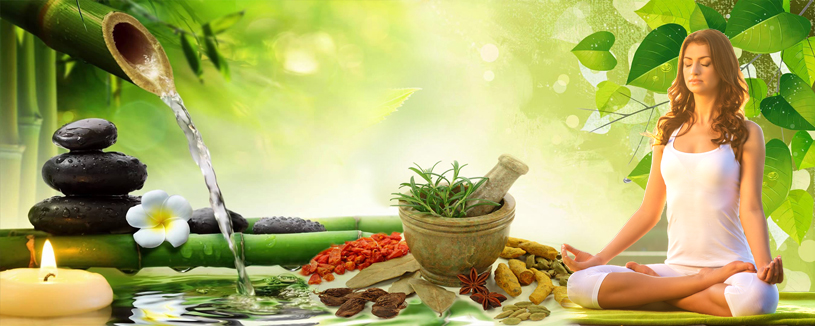
What are the benefits of combining Ayurveda with yoga?
Combining Ayurveda together with yoga creates a powerhouse for balance in the mind and body. Ayurveda will identify your dosha and prescribe specific yoga postures that promote better alignment of the body and improve the flow of energy within.
These practices collectively increase flexibility, reduce stress levels, and offer emotional stability. The integration offers a holistic approach to wellness, marrying physical exercise with clarity of mind.
Can Ayurveda be merged with massage therapy?
Ayurveda can easily be merged with massage therapy, more so with some Ayurvedic massages like Abhyanga. These massages use herbal oils that are unique and chosen per the dosha of every individual, hence helping in the removal of toxins efficiently by enhancing blood flow, and soothing the nervous system at the same time. Massages combined with Ayurveda principles ensure deeper states of relaxation and rejuvenation, hence enhancing physical and mental well-being.
Does Ayurveda complement naturopathy?
Ayurveda and naturopathy go very well together. While both systems rely on natural methods of healing, Ayurveda tries to balance internal energies using diet and herbal treatment, while naturopathy does so with holistic lifestyle modification and physical therapy, including hydrotherapy. Combined, both give a comprehensive view that will help the body heal itself and give importance to prevention.

Does Ayurveda really help in increasing the efficacy of aromatherapy?
Ayurveda can refine aromatherapy by matching essential oils to the needs of each particular dosha. Using targeted oils for vata, pitta, or kapha balance creates a better effect in calming and healing. For example, lavender oil is pacifying for vata, while cooling oils such as sandalwood balance pitta. This personalized use of oils is what contributes so much to physical and emotional well-being.
How does Ayurveda combine with homeopathy?
Both Ayurveda and Homeopathy have their own individualistic ways of treating the disequilibrium that causes an illness in the body. While Ayurveda restores the balance of doshas with herbs and diet, homeopathy does this with substances diluted to stimulate and help nature cure the body of its ailments. Combined, they are gentle and non-invasive toward health, treating both physical and emotional conditions with minimal side effects.
In Conclusion
Implementing Ayurveda together with additional supportive treatments leads to the health restoration process with ease and efficiency. In this way, it is possible to cope with the physical, psychological, and emotional discomforts more comprehensively. A combination of various modalities, be it yoga, acupuncture, or homeopathy, exhibits the best results over a period of time. Therefore, adjusting Ayurvedic practices within a broader health strategy is associated with effective recovery and improved life quality and should, therefore, occupy an important place in any contemporary health approach.
Ayurveda
Ayurveda is one of the ancient systems of medicine originating from India that focuses on the concept of ‘equilibrium’ of the body through diet, herbal remedies, and life habits.

More than 5,000 years after its origin in India, Ayurveda has impacted the philosophy of leading a disease-free life on nearly every continent in the world. This ancient system of treatment-with the emphasis on balance and wholeness-has been used by many cultures as the benchmark to establish their regimen for healing.
The following guide takes you through different aspects constituting the Ayurvedic practice across the globe regional nuances, various treatments, and what translates this ancient wisdom across the globe. Knowing of these practices will help you apply Ayurveda to your life irrespective of where you are living.
What is Ayurveda practice like in the United States?
In the US, Ayurveda is practiced through wellness centers offering treatments like Panchakarma, herbal medicine, and yoga. It’s often integrated with modern healthcare.
In the US, Ayurveda has been improvised to become a complementary approach to mainstream medicine. Various kinds of treatments are on offer in the wellness centers and spas-from Panchakarma or detoxification therapies to herbal medicine and yoga sessions aimed at balancing doshas.
Many practitioners combine Ayurveda with other holistic practices, such as acupuncture or chiropractic care, to provide an even more inclusive approach to health. Similarly, Ayurvedic education has increased, where schools train students who may be interested in this field.
How does Ayurveda find its following in Europe?
In Europe, it is practiced in specific clinics and wellness retreats for detoxification, diet, and lifestyle changes. Certification programs for practitioners are also available.
Hence, Ayurveda has found a strong following in Europe, especially among Germans, Swiss, and British. Special clinics and wellness retreats offer Ayurvedic treatments and detoxification therapies, diet plans according to the type of body constitution, and corrections in lifestyles that can help one maintain a balance in body functions.
This practice is often incorporated with other complementary therapies, including naturopathy and homeopathy. In addition, some institutions in Europe also allow certification programs in qualified Ayurveda practitioners.

What is the practice of Ayurveda in Australia?
Wellness centers that provide herbal treatment, massages, and dietary consultations offer Ayurveda in Australia. The practice is integrated with the approach towards holistic health.
Nowadays, Ayurveda is a very popular form of alternative medicine in Australia, consisting of various wellness centers and clinics that offer such treatment options as herbal medication and different kinds of massage therapies, which include Ayurvedic Abhyanga massage.
Most offer personal dietary consultation according to the Ayurveda constitution. Many integrate these with other forms of holistic health practices, such as yoga and meditation, into one general wellness approach.
The Australian public’s interest in natural and preventive health is fostering the acceptance and application of Ayurveda, in which institutions are offering training programs to individuals who wish to become certified Ayurvedic practitioners, further solidifying its presence in the country.
How does Ayurvedic medicine function in modern India?
In India, the practice of Ayurveda extends into traditional medicine and state-of-the-art health care-an institutional and educational network with a wide availability of services.
Ayurveda is being upheld as part of the Indian health system for treatment parallel to modern medicine in fully committed hospitals and clinics. Ayurveda is recognized by the Indian government through a Ministry AYUSH promoting the practice and ensuring standards regarding education and treatment.
Most traditional Ayurvedic treatments include easily accessible methods to the general public: Panchakarma, herbal medicine, and dietary treatments. Many universities and institutions confer degrees in Ayurvedic medicine and turn out qualified practitioners to keep the tradition alive.
How does Sri Lanka apply Ayurveda in practice?
The use of Ayurveda in Sri Lanka is deeply embedded in health care, including the availability of special hospitals and resorts offering treatments such as herbal medicine, massage therapy, and dietary therapy. It is one of the major components of wellness tourism.
Ayurveda has long been deeply ingrained in Sri Lanka’s healthcare and culture. Specializing in Ayurvedic hospitals and resorts, this practice is part of both the public and private health care systems, offering several forms of treatments ranging from herbal medicine to therapeutic massage and specific dietary therapy adjusted according to the dosha.
Ayurveda is also of prime importance to Sri Lanka’s wellness tourism industry, offering holistic treatments within a serene atmosphere to attract visitors. In addition, the government supports it through regulation and education, keeping it at standards. Thus, this strong cultural connection maintains Ayurveda fully in force in Sri Lanka.

How does Ayurvedic practice occur in Canada?
In Canada, there are places where the practice of Ayurveda takes place as part of the holistic health community along with yoga and meditation. The practice is gaining acceptance due to the personalized nature of the practice.
In Canada, the practice of Ayurveda is incorporated into the holistic health community. Several such centers are located across the towns offering different kinds of Ayurvedic treatments. These centers offer individual health consultations, herbal remedies, and therapies, including Ayurvedic massage.
The practice is usually coupled with yoga and meditation and thus finds a ready audience in Canada’s current interest in integrative and preventive approaches to health. Though not as pervasive as it is in some other countries, Ayurveda is gaining a steady presence, especially among those who wish to find natural and personalized health solutions.
What is the practice of Ayurveda in Japan?
This is practiced in wellness centers in Japan, focusing on diet, herbal medicines, and therapies in the form of body treatment. It is mostly amalgamated with the traditional healing methods of Japan.
This is practiced in wellness centers in Japan, focusing on diet, herbal medicines, and therapies in the form of body treatment. It is mostly amalgamated with the traditional healing methods of Japan.
Ayurveda has become an increasingly popular complementary health practice in Japan. Most of the resorts have run several programs that cater to bringing balance into the body and mind through the science of Ayurveda. Dietary prescriptions coming from Ayurveda, herbal medication, and body treatments like Abhyanga or Ayurvedic massage have been in demand among seekers of health in a holistic way.
Conclusion:
The worldly nature of Ayurveda is a manifestation of its timeless appeal and its holistic approach toward health. Theoretically, whether practiced in the United States, Europe, Asia, or elsewhere across the globe, Ayurveda has been developed to accommodate the cultural and healthcare needs of a variety of populations. A better understanding of how Ayurveda works around the world may hint at using Ayurveda for its versatility and how one can integrate it into his or her health and wellness journey.
Ayurveda
Ayurveda is one of the ancient systems of medicine originating from India that focuses on the concept of ‘equilibrium’ of the body through diet, herbal remedies, and life habits.

Ayurveda is a treatment concept of holistic medicine, originating from the ancient Indian tradition; while manifold benefits are offered, it has also side effects and precautions. While Ayurveda is generally harmless, treatments can be hazardous, particularly when unqualified practitioners give treatments to patients.
In this article, we review a few of the possible side effects of some necessary precautions for your safe and effective Ayurvedic journey by equipping the necessary knowledge in making valid informed consent decisions regarding one’s health.
What is the common side effect of Ayurveda?
Commonly, the side effects of Ayurveda are digestive problems, allergic reactions, or interactions with conventional medications. It is necessary to find a qualified practitioner to minimize risks.
While Ayurveda is generally harmless, some treatments have the potential to cause digestive disturbances such as nausea or diarrhea, which may especially occur when herbal preparations are not well matched to the constitution of the individual.
The side effects in reaction to certain herbs are also quite possible, especially if the ingredients are not well cleaned for quality. Other possible risks include interactions with conventional medications that may lead to adverse effects.
Are there any specific precautions to take with Ayurveda?
The precautions of Ayurveda are consultation with a qualified practitioner, revealing all types of medications and allergies one has, assurance of purity about the herbal products, treatments to be personalized, etc.
Precaution is to be taken concerning the Ayurvedic treatments for safety and effectiveness. First, one needs to consult an Ayurvedic practitioner qualified in his or her specialty regarding one’s health background, including the consumption of certain medicines.
This would also prevent possible interaction between Ayurvedic herbs and drugs apart from telling any known allergies that might result in adverse reactions. The herbal products should be obtained from reputable suppliers, which ensures purity and evades contamination.
This is why, in Ayurveda, personalized treatments are of prime importance, as they not only consider your individual constitutional makeup, called Prakriti but also your imbalances, known as Vikriti. This can minimize the chances of side effects from using herbs that may not be suitable for your body type.

Do Ayurvedic herbs interact with conventional medications?
Yes, some Ayurvedic herbs may interact with your conventional medications, enhancing their action or causing some side effects. Therefore, consultation with a healthcare professional is always helpful.
Interactions between Ayurvedic herbs and conventional drugs can take place; these affect the potency of either the herbal medicine or the allopathic drug.
For example, some herbs interact by affecting the potency of blood thinners, blood pressure medications, and diabetes medications. Such interaction could either have less therapeutic effect or more side effects.
Therefore, any Ayurvedic treatment you are considering using or are currently using should be brought to the attention of your healthcare provider for them to monitor your health and adjust your medication regime as necessary, enabling you to have a safe effective therapeutic outcome.
Is Ayurveda safe during pregnancy?
Ayurveda, in the hands of a professional, is considered safe during pregnancy. Some herbs and treatments need to be avoided. Consult your practitioner.
In Ayurvedic tradition, there are many therapies that can give the woman support during such a delicate time, yet great caution is called for. Some Ayurvedic herbs and treatments, on the other hand, are not indicated during pregnancy and can cause complications.
These would include herbs, for example, that are too potent, such as Ashwagandha, and certain cleansing treatments. The practitioner will be in a better position to provide alternatives that are nontoxic and support pregnancy; examples include dietary adjustments, mild herbal teas, and massage therapies aimed at comfort and well-being.
What precautions must be taken to undergo Ayurvedic detox therapies?
Ayurvedic detox therapies require professional supervision, especially when the person suffers from certain chronic health disorders. The detox methods followed gradually are much safer than the aggressive ones. Consultation is a must.
All these detox therapies, according to Ayurveda, are collectively referred to as Panchakarma and are targeted at cleansing the body of toxins with the aim of restoring balance.
However, they can be pretty extreme and should not be performed without the guidance of a professional, especially by people who have chronic diseases such as heart conditions, diabetes, and autoimmune diseases.
Aggressive detoxification methods flare up these conditions and cause negative side effects. This may involve recommendations by a qualified Ayurvedic practitioner for more gradual and safer detox methods that apply to the individual’s health status.
Does Ayurveda Recommend any Dietary Taboos?
Dietary taboos abound in Ayurveda although this is usually recommended based on individual constitution and imbalances. Some general practices are the rules of incompatible food combination and seasonal guidelines.
Ayurveda views diet as a prime aspect of maintaining good health and preventing diseases. Dietary suggestions are usually individualistic, based on your Dosha or constitution and its imbalance.
For example, Pitta constitution people should avoid spicy and acidic foods, whereas Kapha constitution people should minimize the use of dairy and sweets. Another thing that Ayurveda gives a lot of prominence to is avoiding incompatible food combinations-for instance, mixing dairy with fish can lead to indigestion.
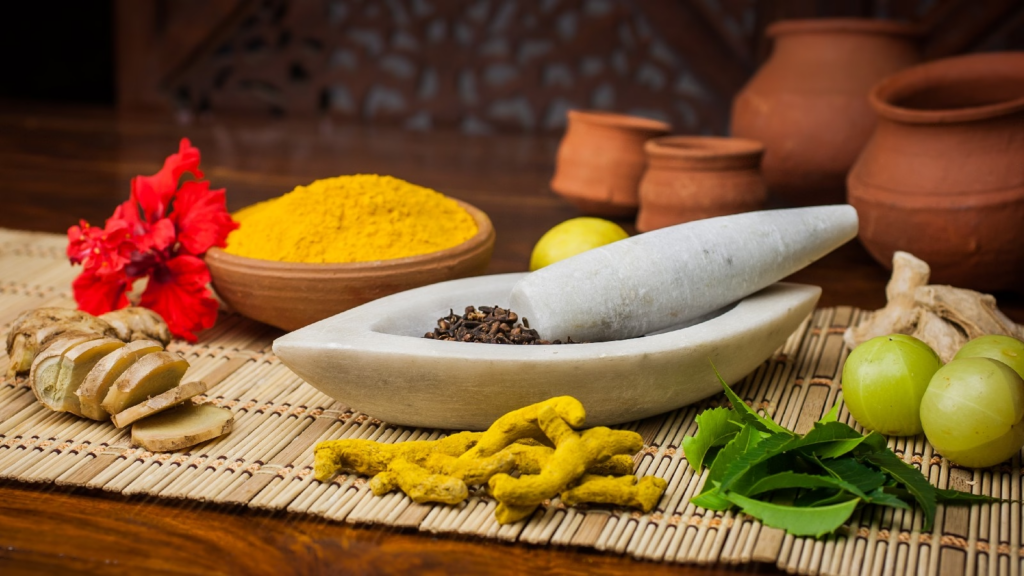
How does one ensure the quality of Ayurvedic products?
Ensure Ayurvedic products from reputed suppliers; check for certifications, ingredient lists. Consult a professional.
The quality of Ayurvedic products becomes an important issue in relation to safety and effectiveness. Ensure that you responsibly select products by considering suppliers with a decent reputation concerning purity and authenticity.
For this, they might also have certifications like GMP or organic, which manifest the good quality of the production standards. Secondly, always check the ingredient list for additives, fillers, or other contaminants that compromise the integrity of the product.
You will also be in a position to choose for yourself the best products that will suit your needs with the consultation of a qualified Ayurvedic practitioner, so that those products will be targeted at some health problems and/or undergone treatments in correspondence with Ayurveda.
Conclusion:
Ayurveda is a wholistic health profession, but there are some adverse effects and measures necessary in order to practice the therapy safely and effectively. In this connection, one can consult qualified practitioners, be aware of the possible interactions with the conventional medicine, and quality in Ayurvedic products to minimize the risks and maximize the benefits associated. Whether you’re new to Ayurveda or seeking to deepen your practice, informed choices are key to a healthy and balanced life.
Ayurveda
Ayurveda is one of the ancient systems of medicine originating from India that focuses on the concept of ‘equilibrium’ of the body through diet, herbal remedies, and life habits.
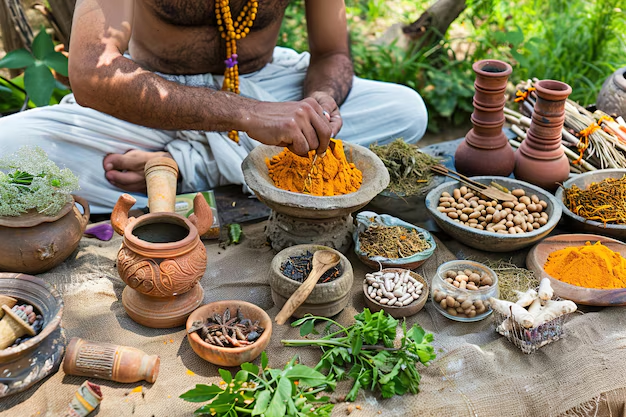
Selecting the appropriate Ayurvedic practitioner is critical in order to avoid any unfavorable occurrences and to get the desired treatment. Due to the increased acceptance of the therapeutic system of Ayurveda, it is imperative to understand learning ability about how skilled practitioners can be found who will give relevant assistance that is acceptable to the concerned individual.
What qualifications should an Ayurvedic practitioner have?
A well-trained Ayurvedic doctor must have a basic education in the field of Ayurveda, like many trained within the parameters of graduations/diplomas from eminent Ayurvedic institutions. The education features diverse sectors of Ayurvedic practices such as herbs, diets, and general well-being.
Also in addition to that, its identification and specification of practice competencies is of great importance, especially in the areas where Ayurveda is dominated such as regions. Certification by reputable organizations allows physicians to perform their duties only after they have met the stipulated requirements.
Information about qualifications, biomedical education and clinical work is also important since practical skills are formed during many years of work. So, within a certain period of waiting for them to return to work, it is practical and reasonable to examine their degrees and experiences.
What are the ways to check the legitimacy of Ayurvedic practitioners?
The legitimacy of Ayurvedic practitioners is checked through the certification obtained from reputable Ayurvedic boards or associations. Most such recognized Ayurvedic boards and associations have searchable databases on line, where it is easy to search for practitioners by name or certification number.
Where such information is not readily available online, it may be prudent to check with the accrediting agency for the practitioner, the said information should be proof of the entitlement. Also, look up that particular Ayurvedic practitioner and see whether he or she has a valid license for Ayurveda practices. It is essential to confirm qualifications in order to shield yourself from less competent practitioners and to ensure that you are professionally attended to.

What questions should I ask a potential Ayurvedic practitioner?
Request their educational qualification certificates and experiences. Understand what treatment options are taken and how they are individualized. Instead, inquire about their hands-on experience-it can be the number of years they have practiced and what they specialize in.
It is also important to talk about what treatment options are available such as how they clinically evaluate a patient, their approach to treatment, and how they customize the intervention. All these queries will guide whether the practitioner is suitable for your health objectives or not.
How important is experience when choosing an Ayurvedic practitioner?
Experience is one of the factors that counts when it comes to selecting an Ayurvedic practitioner. While it is important to have a formal education, it is through intuition and experience that practitioners can be able to engage Ayurveda for effective application. An experienced practitioner is more likely to have come across different challenges in health and thus will be in a position to address each step effectively.
They also know how to change treatments based on how the patient reacts to each treatment increasing individual care. Also, advanced practitioners possess profound knowledge of herbal treatments, lifestyle alterations, and other therapies which can provide extra benefits in places where Ayurvedic treatment is concerned. Experience should be the most important factor when picking your practitioner.
Can I find reviews or testimonials about Ayurvedic practitioners?
Yes, reviews and testimonials are generally available in health care platforms, practitioner’s websites and social network sites. Some other ayurvedic practitioners may also place some testimonials on their website or social network pages. Such feedback can provide information about the practitioner’s approach working with patients, communicating with them, and achieving positive results.
Still, it is essential to read different reviews, especially the positive ones, while also keeping in mind what is being praised in the practitioner. Such testimonials and reviews do prove to assist and bring in an added advantage and help in decision-making when it comes to the selection of Ayurvedic practitioners.
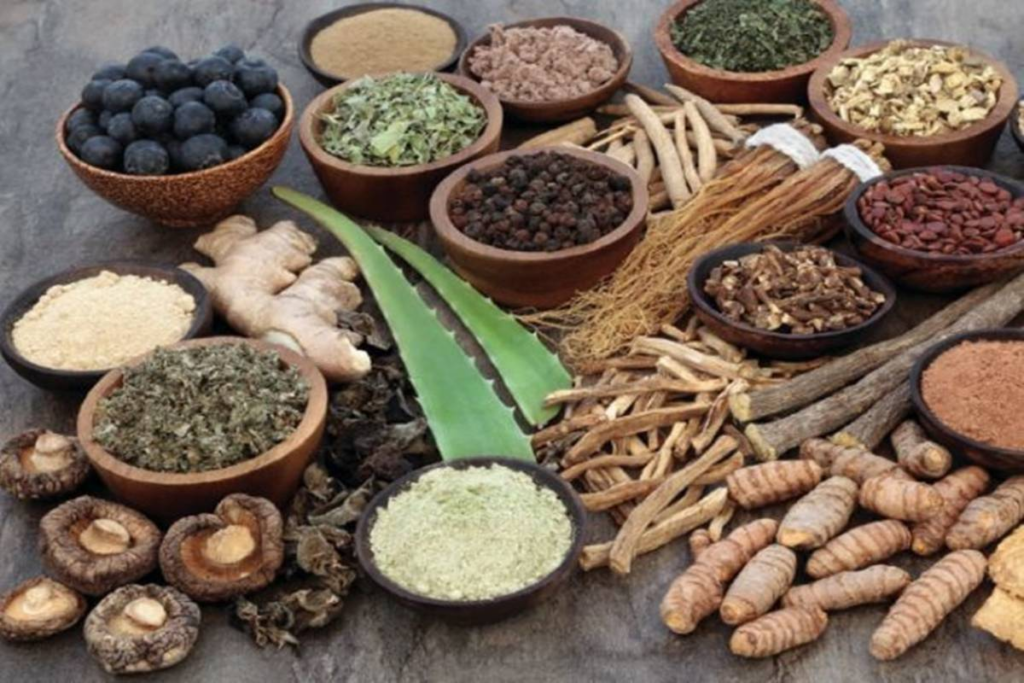
How do I know if an Ayurvedic practitioner is right for me?
To know if an Ayurvedic practitioner is right for you start by examining the professional’s credentials to confirm that they possess proper education and relevant experiences. Then know how they practice Ayurveda and their specialty on general health and well-being of an individual, doing individualized therapy, and if they focus mainly on health promotion.
Making sure, how comfortable you are with the practitioner is crucial because the relationship between the patient and the practitioner is really important for the process of healing. A first visit can be helpful to see if the two of you click. At this point, you will describe your health issues, what type of treatment you expect, and what other questions you may have to see how appropriate the provider is.
In Conclusion
Choosing an appropriate Ayurvedic practitioner involves equally assessing their education and any patients’ complaints, certification and the practitioner’s goals, past experience, and goals in seeking Ayurvedic therapy. Appropriate questions, proper credential verification, and patient reviews can help you to choose a practitioner who is able to offer safe and effective treatment. Remember, fit is essential if you are to get the best results on the Ayurvedic treatment. Assimilate information without hurry and narrow down on a suitable practitioner.
Ayurveda
Ayurveda is one of the ancient systems of medicine originating from India that focuses on the concept of ‘equilibrium’ of the body through diet, herbal remedies, and life habits.
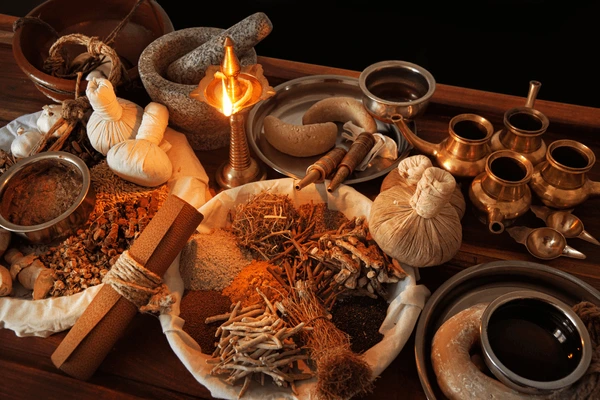
Ayurveda is one of the oldest systems of medicine that addresses a number of diseases; however, it is often surrounded by a number of myths and misconceptions that prevent most from reaping its full benefits. Those misconceptions concern the ability to heal the body the last injury ’it is old fashion’ and so on. In this way, it is quite natural to understand how and why Ayurveda exists in modern times
Is Ayurveda outdated and unscientific?
Ayurveda is a practice that is not an outdated one, it is still practiced in this age. In this respect, different aspects of Ayurveda have entered clinical medicine such as the use of stress reduction techniques which involve taking heat-producing spices like turmeric and ashwagandha.
Furthermore, the attention in modern medicine to healthy nutrition, lifestyle, and mental state, which helps to prevent diseases and support health, also corresponds to Ayurvedic principles. Contrary to traditional home-based practices, Ayurveda is now integrated into clinical-centered holistic medicine. The Ayurvedic system, particularly the Panchakarma method, is increasingly prevalent in rehabilitation medicine, offering significant added value for patient recovery.
Does Ayurveda only include herbal medicines and dietary programs?
Ayurveda certainly includes herbs and diet. Thanks to other methods, such as dinacharya, which refers to regimen activities in daily life, and ritucharya, which entails regimen activities during different seasons of the year, there is no chance of imbalance during the calendar year. When it comes to the mental health aspects, self-care strategies involve meditation, hatha-yoga and pranayama, which are of utmost relevance to Ayurveda practitioners as well.
On top of that, Ayurveda has treatments aimed at cleaning the body and rejuvenating the mind through physiotherapy methods known as Panchakarma. Treatments in Ayurveda are individualized because everyone has his or her own body constitution (dosha) and level of health which affects the treatment offered, thus all the patients do not have the same symptoms.

Can Ayurveda pose any health risks if utilized wrongly?
Yes, anything in Ayurvedic therapy is also harmful if misapplied just like any other method of health treatment. In this case, it is necessary to seek the services of a compotent professional who would provide treatment that creates the greatest benefit for your specific situation.
For example, this type of treatment has some limitations, some ayurvedic herbs can’t be used with Western medicine, or some herbs wouldn’t work in some cases at all. Thus it is vital to look only at a properly qualified Ayurvedic doctor who will be able to understand all the nuances of your constitution (dosha), your current health level, and any diseases you may suffer from if any other conditions are advisable. It is this kind of approach that lessens the chances of any harm being inflicted by too radical forms of Ayurvedic measures to deal with health problems.
Can we call Ayurveda alternative medicine in this present age?
Ayurveda is not a replacement for modern medicine, rather it is an adjunct modality. Although Ayurveda has the knowledge for preventive care, treatment of diseases, care of the patient’s health and other factors, the purpose is not to replace conventional treatment methods, especially in the case of serious or life-threatening illness. On the contrary, Ayurveda can be practiced along with modern medicine and make healthcare more comprehensive.
For instance, stress management, cleansing programmes, and dietary changes offered by Ayurveda can be used effectively along with conventional treatments in order to enhance treatment and improve quality of life. The combination of care offered by Ayurveda and care offered by modern one can be very effective.
Do Ayurvedic treatments take time to see effects?
Ayurvedic approaches may take time, since the emphasis is placed on long-term healing and getting to the bottom of health complaints and not providing quick solutions. It is a systematic approach to restoring the inner and outer harmony of the individual and as such affording a healthier life sustenance.
For instance, chronic imbalances relating to the stomach or stress require the individual to change diet, take herbs, and make other lifestyle changes all aimed at achieving health results within a specific duration. However, this style may require a bit of patience, but results are usually more permanent. A permanent cure is the strength of ayurveda.

Is Ayurveda only for Indians or people of Indian origin?
Ayurveda is a healthcare system that can be applied to anyone, irrespective of a person’s nationality. The principles of homeostasis, living close to nature, and addressing individual needs holds true for everyone and hence, do not lose relevance even in today’s world.
Some of the fundamental tenets of Ayurveda the oneness if the mind, body and spirit, living according to nature, and the tailoring of treatments to the individual are useful to every human being, and so within Ayurveda lies a relevant, working system of health, wherever the place happens to be.
At present day, Ayurveda is well spread and practiced in various countries where there are wellness centers, cruelty-free clinics, and practitioners who provide Ayurvedic treatments. The UNESCO proposes the primary reasons for including Ayurveda in the global health system as the utility and versatility of its principles.
Can anyone practice Ayurveda without formal training?
No, practicing Ayurveda without certain formality is not encouraged. Proper certification entails education and understanding of the context to enhance the effectiveness and safety of Ayurvedic practices.
Ayurveda is more than in due consideration of simply handing over drugs only. It also has a primitive detailing which means that one has to take into consideration every person’s dosha, health status, and environment. Such practitioners with proper training can safely perform and implement the ayurvedic treatment safely, skillfully, and efficiently. In addition, it helps to avoid violations and illegal acts when providing clients with Ayurvedic medication so that the satisfaction of every person who comes for this service is assured.
Wrapping Up!
Firstly, it is impossible to appreciate and completely measure up Ayurveda without first understanding it and busting the common myths associated with it. While Ayurveda may have first risen centuries ago, it is also very much alive today and evolving in a way that coexists with modern medicine. As such understanding and other educational activities aim at changing the negative perception held against Ayurveda more of these benefits will be achieved. This may pertain to use in conjunction with other orthodox therapies, by itself, or in all modalities.
Ayurveda
Ayurveda is one of the ancient systems of medicine originating from India that focuses on the concept of ‘equilibrium’ of the body through diet, herbal remedies, and life habits.

Medical science is giving more interest to Ayurveda, an ancient system of natural healing. Committees from many parts of the world are studying its tenets and its functioning to see if they are able to advance healthy living and the treatment of ailments. In this case, one orientates towards the integration of Ayurveda into the modern healthcare system without losing the essence of this ancient system.
What does science-based research say regarding Ayurvedic medicine?
Scientific studies say Ayurveda can benefit chronic disease management, boost mental health, and enhance immunity. We now have evidence to back the use of Ayurvedic herbs like turmeric and ashwagandha for inflammation and stress relief.
Despite these revealing observations, some concerns exist such as conducting more substantial multicenter studies of higher quality so as to enhance the credibility of Ayurveda in the mainstream health setting. At the same time, scholars are also amazed at the integration possibilities of ayurvedic principles in contemporary medicine, emphasizing more on the wellbeing of the patients.
What do research studies reveal on the efficacy of Ayurvedic herbs?
According to research studies, effective treatment with various Ayurvedic herbs is possible. For example, many people are well aware of turmeric, as it is a common anti-inflammatory, and many studies prove it works for arthritis and other inflammatory diseases. Ashwagandha is used because it is adaptogenic and thereby enhances the body’s capabilities to effectively confront stressors.
Neem is an herb that is also very much used in the Ayurveda practice and research has shown that it has heightened anti-infective properties against infections and skin diseases. While these herbs are old and have some literature support, clinical trials are necessary for optimal doses and for acceptance in mainstream medicine.

Are the Ayurvedic practices backed by any clinical investigations?
Yes, there are clinical trials supporting the Ayurvedic aspect of medicine, especially with regard to chronic illnesses and mental health. For instance, blood sugar and heart disease studies on some Ayurvedic formulations have shown a positive trend in those conditions. Moreover, some Ayurvedic techniques such as Panchakarma have also been studied for detoxification and rejuvenation properties.
However, due to these encouraging outcomes, most of the clinical trials have been small or exploratory. In other words, there is a limit to which Ayurveda can be practiced and accepted in regular medicine without further extended and quality-designed trials that will enable accurate standardization of the Ayurvedic enthusiast.
How is Ayurveda being integrated with modern medicine according to research?
There’s an increasing trend in research studies of the integration of Ayurveda and modern medicine and that becomes more perhaps in holistic healthcare settings where patients receive modern plus Ayurvedic treatment. This is more evident in practice for instance in the management of chronic illnesses whereby diet, lifestyle, and herbal usage are practiced along side orthodox medicine.
For example, patients undergoing routine care may also be recommended with an Ayurvedic diet and stress management during treatment. Furthermore, Ayurvedic treatment is now available in some hospitals or clinics as a part of their center for complementary and integrative medicine services expanding the treatment options for the patients. This strives to provide better and more efficient treatment.

What are the challenges in researching Ayurveda?
The most difficult area in the research of Ayurveda is its difficult and diverse herbal-based preparations, as different practitioners will blend different ingredients and ratios in their herbal remedies for the same ailment. Due to the reason of this lack of standardization, studies cannot be carried out in a uniform and reproducible manner. In addition, the integrative nature of
Ayurveda, which encompasses the body, emotions, and spirit, makes it difficult to use the modern scientific paradigm for testing its methods. Other times, the two aspects, the ancient Indian knowledge and modern science, frequently remain at cross purposes. This is why these bold barriers need to be overcome by Ayurvedic practitioners and researchers working together to propose comprehensive standardized protocols.
What does research say about Ayurveda in mental health?
Research has increasingly recognized Ayurveda’s role in promoting mental health through practices such as meditation, yoga, and the use of herbs including ashwagandha and Brahmi. These studies have also shown that such practices can reduce stress, anxiety, and depression, and offer a natural complement to conventional treatments for mental health.
For instance, Ayurvedic meditation and yoga improve the level of awareness and emotional stability, while herbs such as ashwagandha have been researched for their adaptogenic features, which help the human organism cope with stress. What is more, Ayurvedic nutrition, based on a balance and nourishment effect, also influences mental health positively. This holistic approach is contributing much to the health of the soul and body.
The Key Takeaway
Adapting Ayurveda to modern scientific research will facilitate its appropriate and wider use in health care. There are still issues in harmonizing and interfacing Ayurvedic principles and forms of practices but the evidence cumulated so far shows how effective Ayurveda can be for chronic disease treatment, improvement of the mental state, and when used together with conventional medicine. In the coming years, as interest in holistic health continues to rise, further developments concerning Ayurveda as a modern approach to well-being are expected.
Ayurveda
Ayurveda is one of the ancient systems of medicine originating from India that focuses on the concept of ‘equilibrium’ of the body through diet, herbal remedies, and life habits.
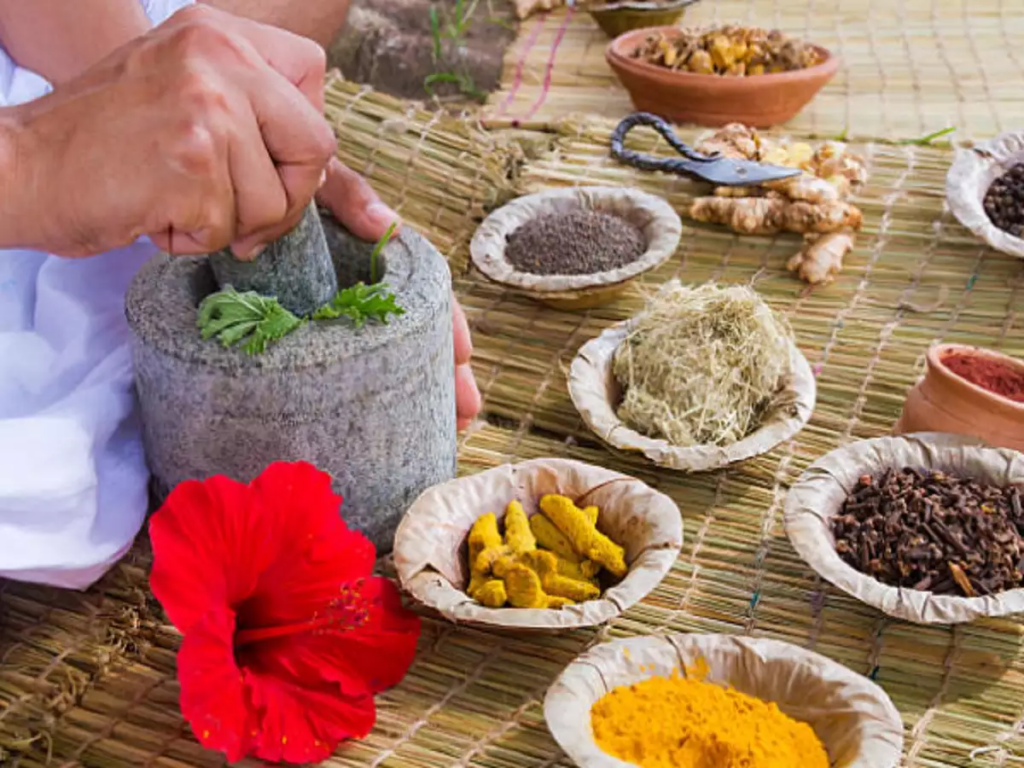
Ayurvedic knowledge which is very old wisdom is attracting attention all around the world because of its natural and individual treatment. People either engaged in health care or wish to practice natural healing find satisfaction in Ayurveda. It is important to identify who practices Ayurveda and the necessary steps to take when practicing it to make sure that the positive aspects of this system are well incorporated within the modern way of life.
Who is a practitioner of Ayurveda?
Ayurveda can be practiced by licensed healthcare personnel with certificates. However, most of the practitioners require formal education in Ayurveda in most instances internationally recognized institutions. In many countries, these practitioners are also expected to acquire and practice appropriate licensing or certification.
There are advantages of adding Ayurvedic approaches for practitioners who have previous work in natural therapies or holistic medicine. These professionals can undertake degree courses in Ayurveda which will empower them to become health providers offering advanced solutions that are complimentary of both orthodox and Ayurvedic approaches.
What is the educational requirement to practice Ayurveda?
Generally, in order to practice Ayurveda, qualifications would require a degree or diploma from a recognized Ayurvedic institution. In many countries this education is completed with some certifications and licenses otherwise people will not be able to meet the local healthcare standards.
Such programs usually include primary embarrassed Ayurvedics, Herbalism, dietetics or lifestyle-changing practices, which allow to render the treatment sought. For individuals who have graduated in conventional medicine or any other alternate therapy modalities, Ayurveda as a discipline is used as a toolset expansion, although it is not always necessary.
Practicum, and sometimes additional practical work, is included in these programs in order to raise the competency of practicing Ayurvedic medicine in a number of clinics.

How can you get started with practicing Ayurveda?
The first step in practicing Ayurveda is to take up an approved Ayurvedic course. Further, it involves a nice balancing among all areas of education with regard to Ayurveda such as diagnosis and treatment as well as management of lifestyle. Since practical knowledge is essential, look for internships or apprenticeship positions that allow you to gain hands-on experience under the guidance of qualified mentors.
After doing your course, make sure that you undertake all the necessary examinations and documentation that will allow you to practice in your locality. Improving further through more studying in workshops and advanced courses and updating yourself on new developments in Ayurvedic medicine will further prolong your expertise and enhance your practice in the health provision to your clients.
What are the career opportunities for Ayurvedic practitioners?
Career opportunities for Ayurvedic practitioners are vast and varied. Many practitioners prefer private practice where they deal with clients on a one-to-one basis. Others prefer to work in holistic health programs and are involved in health care delivery in a multi-disciplinary environment.
There is also the opportunity of academia where practitioners may engage in teaching and or research on aspects of Ayurveda. Furthermore, practitioners are involved in product development as Ayurvedic herbal health products are gaining popularity in the market. Other practitioners may further their careers by specializing in the Practice of Ayurvedic dietary therapy or use of Panchakarma detox therapies or the practice of Ayurveda massage.
How much time does it take to become an Ayurvedic practitioner?
It usually takes 3 to 5 years on average to become an Ayurvedic practitioner which depends on the program and level of study pursued. A bachelor’s degree in Ayurveda, popularly known as B.A.M.S. or Bachelor of Ayurvedic Medicine and Surgery usually takes about 5 years which will include clinical training.
For some seeking only basic qualifications, shorter diploma programs may be available. If they successfully finish their education, practitioners often are required to follow internships. In some areas, those may also take time as practices and processes of certification and licensing are present. Educational maintenance is through workshop activities and taking up advanced courses is still promoted.
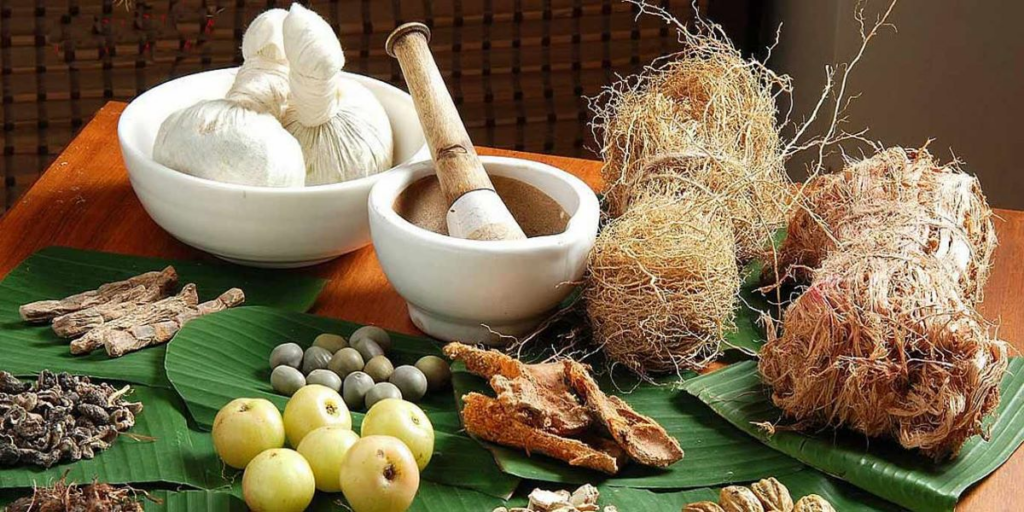
What is the scope of Ayurveda outside India?
Outside the borders of India, Ayurveda is gaining ground as a complementary and alternate mode of treatment and its practice is growing. It has practitioners and wellness centers specializing in ayurveda and educational centers propagating the practices in many countries.
Whereas, for instance, Ayurveda is incorporated in some areas with alternative medicine, it can be used as a non-intrusive adjunct to the allopathic practice. However, some countries practice Ayurveda while others don’t, and some countries are more amenable than others, in requiring licensing.
Some restrict licensing in certain professions while other countries are more accommodating and do not. Nevertheless, the churning effects of wellness which Ayurveda focuses on, remain a clear and present factor fanning its popularity.
What is the ethical principle in the practice of Ayurveda?
The ethical principle in the practice of Ayurveda is to follow the ethical values. To start with, proper education and acquired skills and experience through relevant certification and registration should be practiced by any practitioner who wishes to extend his or her services to Ayurveda.
Protection of private information in doctor patient relationships and the emphasis on professionalism are also vital ethics entrenched in the practice. Administered Ayurvedic protocols should always have a rational backing aimed toward individualization rather than universal application.
Several practitioners should acknowledge the limitations of Ayurvedic medicine and the distinction of problems that once achieved can not be achieved again and vice versa. When necessary such paradigm shifting considers the need for engaging other healthcare providers for better management in situations where Ayurvedic management is abandoned in isolation.
In Conclusion
A career in Ayurveda is innovative, as it integrates ancient wisdom with contemporary practices. A prospective practitioner, having grasped the concepts of ‘who is it right for’, ‘who is qualified’, and ‘what ethics to adhere to’ will be able to pursue their ambitions in the field of holistic health. The ever-changing living standard and lifestyle opens up various avenues for Ayurveda whether merged or kept separate from conventional medicine practices. Trust and ethics practice will not allow the classification of Ayurveda as other health systems in the world.
Ayurveda
Ayurveda is one of the ancient systems of medicine originating from India that focuses on the concept of ‘equilibrium’ of the body through diet, herbal remedies, and life habits.

The path to becoming an Ayurvedic practitioner is both ancient wisdom and modern education in one. This outline gives clear steps on how to understand the general necessities and procedures that surround this enriching career. We shall answer major questions on how one chooses the right educational path, gains certification, and acquires practical experience to help you find your way toward being a qualified Ayurvedic practitioner.
What educational qualifications are needed to become an Ayurvedic Practitioner?
To practice as an Ayurvedic practitioner one needs to have a degree in Ayurvedic medicine. An Ayurvedic degree is often acquired in a degree program that takes additional courses like anatomy, physiology, herbal medicine, and Ayurvedic philosophy.
To become an Ayurvedic practitioner, one has to complete some course work in an Ayurvedic education centre which usually consists of obtaining a degree such as a Bachelor of Ayurvedic Medicine and Surgery (BAMS) or other educated qualification.
It forms the background if one desires to make a long-standing career where there are subjects such as anatomy, physiology, pathology, pharmacology among others, and the basic concepts of Ayurveda. In addition, students are taught about health promoting practices based on suitable diets and herbal remedies as well as Ayurvedic therapeutic techniques.
Some further education or special coursework may improve your preparedness for certification and practice in the future. This kind of education is crucial to avoid difficulties associated with the practice of Indian medicine so that one is able to deliver one’s interventions based on Ayurvedic principles as intended.
What are the different certifications necessary to be able to professionally practice Ayurveda?
The professional practicing degree would differ depending on the country, but most countries require a recognized degree in Ayurveda and registration with a professional board or association of Ayurvedic practice.
Certification after completing your formal education is an important step toward becoming a professional Ayurvedic practitioner. The certification requirements differ with the country or region. For instance, in India, it is required that graduates from BAMS register with CCIM to practice legally.
In the case of other countries, it may be that one has to be certified to practice by any recognized association of Ayurveda, such as NAMA in the United States. The certified course ensures that practitioners will work in a manner that is in accordance with professional standards and follows ethical guidelines, thus offering credibility and legal recognition in the practice of Ayurveda.

What practical experience does one need to have to become an Ayurvedic practitioner?
Practical experience generally includes internships or apprenticeships under experienced practitioners as a requirement. This practical training thus helps in the application of theoretical knowledge in real-world settings.
The whole practical experience is included in becoming an Ayurvedic professional. Most courses include an internship or clinical rotation where they have to work under the direct supervision of experienced Ayurveda doctors. In this process, students learn to diagnose patients, prepare treatment plans, and apply different Ayurveda therapies in a real setting.
This experience is quite valuable in allowing the future practitioner to hone his or her craft, gain confidence, and develop a greater understanding of patient care. Further, apprenticeship or post-mentorship experience with established practitioners will provide more depth in hands-on knowledge, enabling one to consider independent practice upon certification.
How long does it take to become a certified practitioner in Ayurveda?
Normally, an individual requires 5-7 years to become a qualified professional in the practice of Ayurveda, taking into consideration requirements such as undergraduate studies, practical training, and processes involved in certification.
The process of being certified as an Ayurveda practitioner normally takes about 5 to 7 years. This includes an undergraduate study of Ayurvedic medicine that usually takes about 5.5 years, including academic study and clinical internships.
You will have to spend more time studying at the postgraduate level or taking other specialized training, depending on your career goals. Certification and registration, also variable in different regions, may take up to some months to one year. Though this route may be long, it tries to ensure that professionals are adequately armed with the knowledge and skills necessary to produce quality in Ayurveda practice.

What is most important in the skill set development for successful Ayurvedic practice?
A practitioner of Ayurveda should possess sharp diagnostic skills, knowledge of herbal medicine, communication with patients, and a deep understanding of the principles behind Ayurveda.
An Ayurvedic practitioner should possess a number of key skills in his armamentarium, the first and foremost being sound diagnostic skills which would enable him to identify the Dosha imbalance and health malady of the patient.
Knowledge of herbal medicine would provide the practitioner with an effective prescription, while patient communication would ensure that the sometimes-complex philosophy of Ayurveda is explained clearly and sympathetically. A deep understanding of Ayurvedic concepts including diet, lifestyle, and spirituality is also an essential component in his therapeutic toolbox.
In addition, practitioners should be flexible and dynamic, enlightening themselves every day to integrate the newest scientific discoveries into traditional approaches for the best possible service to their patients.
What are the career prospects for an Ayurveda course in the case of a certified practitioner?
With the certification in Ayurveda, the practitioners may work in private practice, wellness centers, hospitals, teaching, or research. Other career possibilities might include herbal product development and integrative health care.
There are many career options available for a certified Ayurvedic practitioner. Many of them open their private practices, providing personal Ayurvedic consultations and therapy. Others work in wellness centers, hospitals, or integrative health facilities, coordinating with other health professionals toward a common goal of holistic care.
Teaching and research are also good career paths for academic and scientific growth in Ayurveda. A practitioner can also engage oneself in the preparation of herbal products, using knowledge of Ayurvedic herbs and formulations for the development of wellness products. These diverse opportunities allow the Ayurvedic professional to make their presence felt in almost all aspects of health and wellness.
Conclusion
The study and practice of Ayurveda are highly rewarding, and requires definite commitment to education and experience. You will be able to develop a successful career in Ayurveda through comprehending the key steps, right from qualification to hands-on experience and certification. A career in Ayurveda thus remains terribly rewarding, with opportunities available in private practice, teaching, and research for the enthusiast in holistic healing and natural medicine. Take a journey to help others find balance and well-being through ancient wisdom.
Ayurveda
Ayurveda is one of the ancient systems of medicine originating from India that focuses on the concept of ‘equilibrium’ of the body through diet, herbal remedies, and life habits.
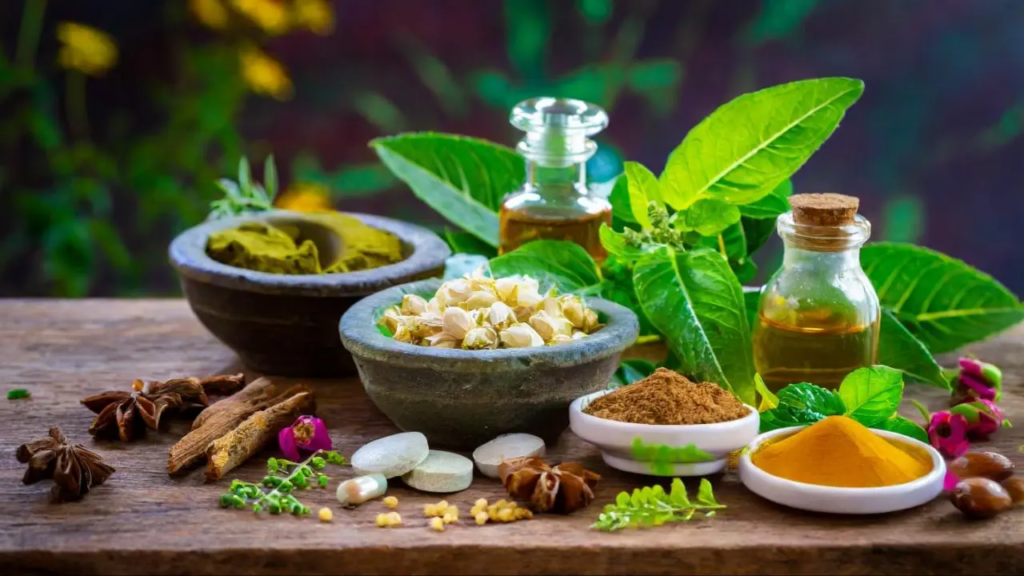
Ayurveda, the ancient healing science, reveals innumerable health benefits in terms of the balance of mind, body, and spirit. Those practicing Ayurveda are at an advantage in physical health, clarity of mind, and emotional stability. So, for the benefit of beginners, this article has answered some of the fundamental questions about the healing powers of Ayurveda in a lucid and intelligible manner to make sense of this ancient practice to upgrade your life.
What are the most important healing benefits attributed to Ayurveda?
The main healing benefits associated with Ayurveda include digestion, improved immunity, stress reduction, and Doshas balance. These benefits will help someone to get healthy in general, by addressing the root cause of the health problem and not just the symptoms.
The primary healing benefits of Ayurveda are based on a general view of health, in which it tries to balance Doshas in the body. This balance leads to proper digestion, which is central to good health according to Ayurveda, and also to enhanced immunity since the body is better prepared to fight off a variety of diseases.
Besides, other Ayurvedic practices such as meditation, yoga, and herbal treatments contribute to reducing stress and hence to mental and emotional well-being.
How does Ayurveda support mental clarity and focus?
Through balancing one’s mind energies, living a Satvic lifestyle, and consuming appropriate herbs, including Brahmi and Ashwagandha, Ayurveda enhances mental clarity and improves focus by helping eliminate mental fog that interferes with cognitive abilities.
Ayurveda helps to enhance mental clarity and concentration through practices that balance the energies of the mind and create a Sattvic state. A Sattvic way of life, replete with fresh wholesome foods, adequate meditation, and sufficient sleep all contribute to keeping the brain mentally sharp.
Some of the Ayurvedic herbs, like Brahmi and Ashwagandha, are also said to sharpen the cognitive faculties by dissipating mental fog, enhancing memory, and increasing concentration.

Can Ayurveda help with the management of chronic diseases?
Ayurveda can help in managing chronic diseases because it locates the very root of such diseases and then balances the Doshas, incorporating natural treatments such as diet, herbal remedies, and lifestyle changes. A holistic approach for long-term management with an improved quality of life is thus ensured.
Ayurveda’s mode of dealing with chronic diseases involves the identification and treatment of the root cause, which could be related to the three Doshas: Vata, Pitta, and Kapha.
Ayurveda tackles such ailments as diabetes, arthritis, and hypertension by reinstating this balance through personalized diet plans, herbal treatments, and lifestyle modifications. While conventional treatments may address mere symptoms of a disease, Ayurvedic practices are designed to offer long-term relief and improved quality of life by enhancing the body’s natural healing abilities.
How does Ayurveda support immunity?
Ayurveda supports immune health through the strengthening of Agni, hence balancing the Doshas, and boosting with immunity-enhancing herbs like Turmeric and Tulsi. Such a holistic approach enhances the body’s defense against disease.
Ayurveda draws a very logical explanation where it is believed that good immunity is directly related to the power of Agni- the digestive fire that digests food and eliminates waste. Balanced Agni ensures the body gets good nourishment for maintaining a strong immune system.
According to Ayurveda, balancing the doshas helps avoid the accumulation of Ama-toxicity that can lead to the weakening of immunity. This, in turn, helps prevent diseases. More than that,
Ayurveda herbs such as turmeric-known for their anti-inflammatory properties, tulsi are known for their adaptogenic qualities and help a great deal in enhancing the immune system. This all-rounded approach ensures that the body is well-prepared for fighting illnesses and maintaining overall health.
What does Ayurveda do about stress?
The practice of Ayurveda curtails the level of stress through the promotion of practices counterbalancing the mind and body, steps like meditation, yoga, and herbal remedy applications such as Ashwagandha being a very good example. These will calm the nervous system and help build up inner peace.
Ayurveda centers around balancing the energies within the body and having a peaceful mind as the conceptual approach toward the reduction of stress.
These cover meditation and yoga practices, which help regulate the nervous system, reducing cortisol levels, and therefore promoting an inner sense of well-being. Ayurvedic herbs, particularly Ashwagandha, help mitigate stress because they are adaptogenic- they help the body adapt to physical and emotional stressors.

How does Ayurveda usher in better overall well-being?
Ayurveda improves overall well-being through the maintenance of balanced Doshas in the body, proper digestion, enhanced immunity, and clarity in mental functions. This holistic approach leads to prolonged health, vitality, and balanced mind-body coordination.
Ayurveda improves overall well-being by bringing equilibrium to everything the doshas in the body, digestion, or even the state of the mind.
This traditional practice focuses on the diet and lifestyle of a person for the purpose of optimum health, proper digestion, and immunity. It brings about the prevention of disease and continued vitality by getting to the roots of the imbalance.
Ayurveda also addresses mental and emotional well-being through meditation, yoga, and specific herbs used to ensure clarity of mind and emotional stability. This holistic approach has created a relationship between mind, body, and spirit that eventually leads to harmonious living and gives satisfaction in life.
What is the significance of Agni during any Ayurveda treatment?
Agni, or digestive fire, is important in Ayurvedic treatment. It controls digestion, metabolism, and resistance. If Agni is proper, it digests all food and absorbs all nutrients, with waste material excreted out through the intestines and kidneys, thus maintaining overall health.
In Ayurveda, Agni is the cornerstone of health because it ensures digestion and food metabolism, thus successful food assimilation. Good Agni basically means everything ingested will be properly digested in the body, where all useful nutrients get duly extracted and wastes and toxins discarded.
While Agni is in a balanced state, it maintains immunity and energy at great levels, sustaining good health in general. This, in turn, leads to the weakness of Agni and a build-up of toxins or Ama, problems with digestion, and loss of immunity.
Conclusion:
Embracing Ayurveda opens one up to various healing benefits that go beyond symptomatic treatments. According to Ayurveda, this balance of energies in the body, improvement in digestion, and clarity of mind are the reasons behind long-lasting health and vitality. Whether it is the management of chronic conditions, lessening of stress, or boosting immunity, Ayurveda offers a natural, holistic approach toward health and well-being. Just by applying some of the basic principles of Ayurveda in your daily life, you can be much more harmonious and fulfilled.
